I Inhale Nature & Exhale Music
Abhishek Ray Music Composer, Singer, Live Performer, Wildlife Conservationist Founder - Sitabani Wildlife Reserve
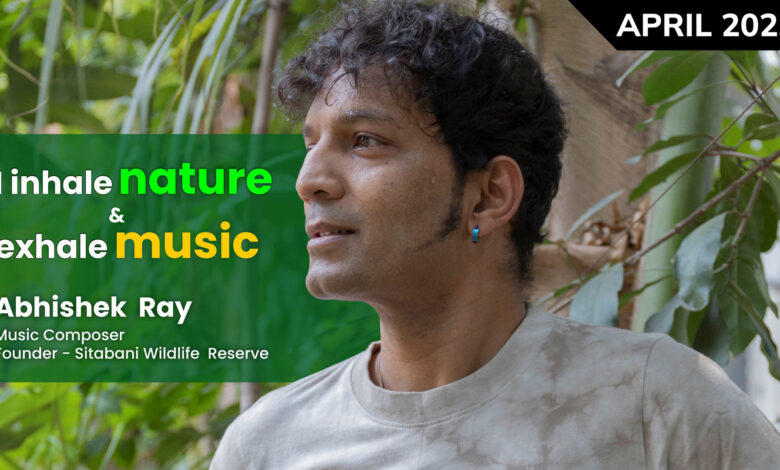
Tell us something about the beginning of your journey in the world of music. Did you inherit music or was it your own interest?
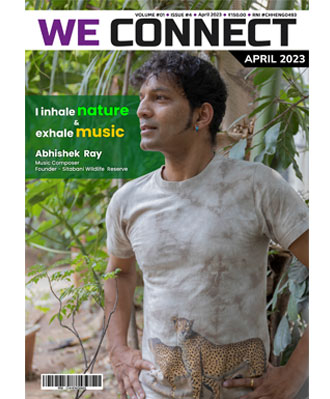
The talent for music is a completely genetic trait. If you are born with this bug, it will force you to take on a certain route in life. You are enslaved to obey this genetic trait or talent, whatever you choose to call it. Right from my childhood days, melodies used to keep on coming and floating around in my head and I didn’t know what to do with them. Later I realised that this weird phenomenon was the sign of an original composer. From the tender age of four, I started learning the piano and western classical music. My grandmother was a vocal artist with AIR Kolkata and both my parents are steeped in Indian classical music.
So, the roots of Indian classical music ran deep in my family from whom I started learning Indian vocal music. So, I always maintain that I have an Indian voice with the fingers of a western man. Little did my parents know when I was learning symphonies and Indian ragas along with my formal education, that this would sow the seeds of a future Bollywood film composer and playback singer.What memories do you cherish about your college life while studying at Shivaji University and Bombay University?
You started your music career under the guidance of Gulzar Sahab. Gulzar Sahab is a great personality. How has it influenced your musical journey?
 Pertaining to a Bengali family steeped in music, I grew up listening to a vast repertoire of music starting from Mozart to Salil Choudhury, Bach to Madan Mohan, Beetles to S D Burman! I was always a film buff and was enamoured by classics like Out of Africa, Godfather, Last of the Mohicans, Guns of Navarone as well as Indian gems like the work of Satyajit Ray, Vijay Anand, Bimal Roy and last but not the least Gulzar Sahab. I was captivated by his films like Mausam, Aandhi, Kinara, Khushboo and the brilliance of his effortless lyrics set to tune masterfully by Rahul Dev Burman was like honey to the ears and solace to the soul. Little did I know that life would conspire my meeting with such an icon in the course of time and Gulzar Sahab would eventually introduce me to Bollywood with a magnificent solo album namely ‘Udaas Paani’. This solo album written and narrated by Gulzar Sahab and sung and composed by me would go on to be a cult album and a collector’s item. After the incredible success of Udaas Paani, we were flooded with offers and I delivered other superhit albums with him like Raat Chand Aur Main, Kab Aate Ho etc and bestselling singles like Meghaa (sung by Shreya Ghoshal), Asharfee (sung by Kavita Krishnamurti, Udit Narayan), ghazals like Yeh Dil, Doob Gaye ( sung by Hariharan), Saat Din (sung by Alka Yagnik) and many others.
Pertaining to a Bengali family steeped in music, I grew up listening to a vast repertoire of music starting from Mozart to Salil Choudhury, Bach to Madan Mohan, Beetles to S D Burman! I was always a film buff and was enamoured by classics like Out of Africa, Godfather, Last of the Mohicans, Guns of Navarone as well as Indian gems like the work of Satyajit Ray, Vijay Anand, Bimal Roy and last but not the least Gulzar Sahab. I was captivated by his films like Mausam, Aandhi, Kinara, Khushboo and the brilliance of his effortless lyrics set to tune masterfully by Rahul Dev Burman was like honey to the ears and solace to the soul. Little did I know that life would conspire my meeting with such an icon in the course of time and Gulzar Sahab would eventually introduce me to Bollywood with a magnificent solo album namely ‘Udaas Paani’. This solo album written and narrated by Gulzar Sahab and sung and composed by me would go on to be a cult album and a collector’s item. After the incredible success of Udaas Paani, we were flooded with offers and I delivered other superhit albums with him like Raat Chand Aur Main, Kab Aate Ho etc and bestselling singles like Meghaa (sung by Shreya Ghoshal), Asharfee (sung by Kavita Krishnamurti, Udit Narayan), ghazals like Yeh Dil, Doob Gaye ( sung by Hariharan), Saat Din (sung by Alka Yagnik) and many others.
You have a long experience working with Gulzar Sahab. What is the biggest art you learned from him?
I have learnt many valuable life lessons from him at a very tender age. He is a man of silence. In this era of buzz and social media where artists are constantly jostling for screen presence, Gulzar Sahab is the opposite. You will never see him at any film party, media gatherings, etc. He is reclusive and lets his work speak volumes. I feel that this is the hallmark of a true artist. Believe in yourself and your original creations and fame will follow. Run after fame and it will elude you. I believe that there are many lessons in silence, patience, vision, wisdom, and intellect that I have imbibed from this great man. Most of them cannot be put into words.
Gulzar Sahab was like a banyan tree for me and I was a tiny sapling growing in its shade.
How was your initial struggle to make your place in Bollywood? How did you face and overcome all the challenges?
I have lived my life like a wild animal. Taking what comes my way naturally, homing in on my inner strengths, and moving on without thinking much about the future. I have had an instinctive approach to life and music enjoying everything that appeals to my core, expecting nothing, going with my animal instinct, and creating original intellectual property.
Since I was a graduate of Physics Hons from Delhi University and a Master’s in Computer Applications, I was an educated artist who already had an established music market in Delhi. I never begged for work or appeared desperate to film producers. So, I have never looked upon my journey as a struggle. Bollywood is like a jungle. You must use all your survival traits to survive on your own. Identifying your strengths, avoiding negative energies, and chiselling your talent to give it a cutting edge that keeps you naturally ahead of the competition.
What was the initial breakthrough in your career that brought you recognition as a music composer?
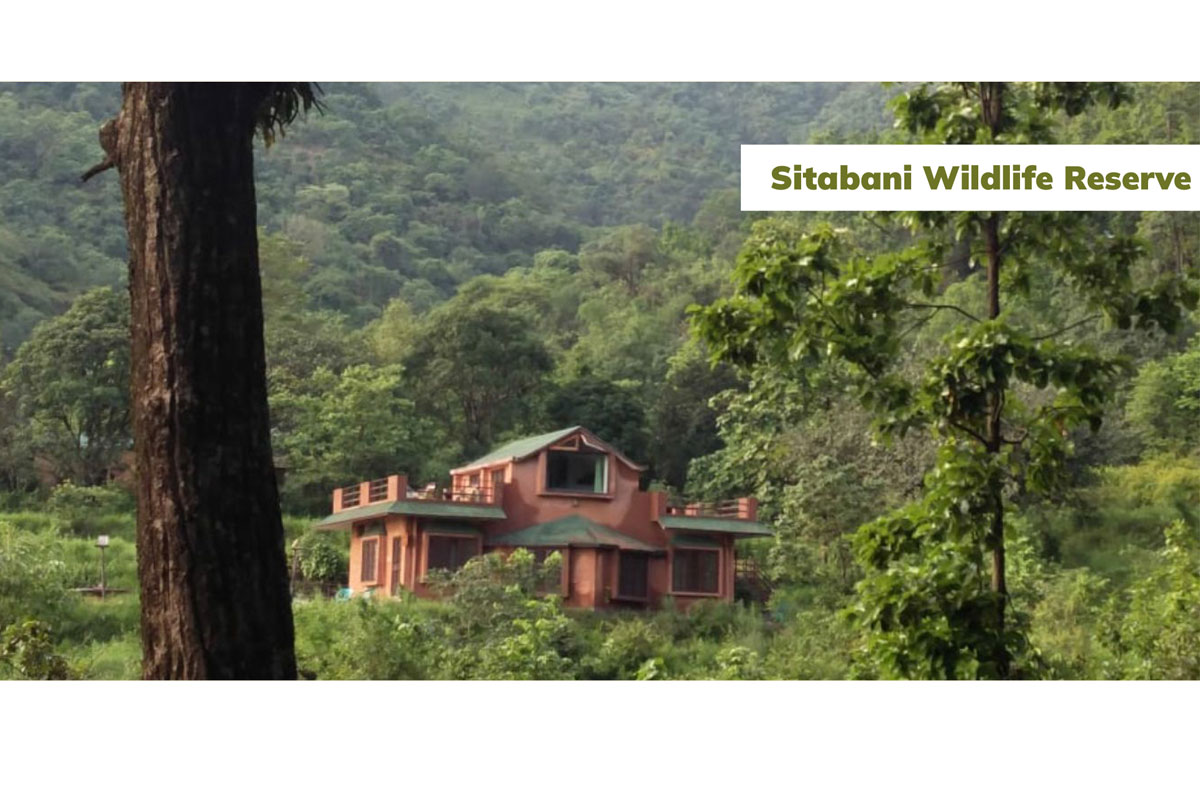
Those days, I had done the music for an acclaimed television series called Rajdhani for Star Plus directed by an upcoming talented director named Tigmanshu Dhulia. This grand series was produced by Bobby Bedi, the producer of Bandit Queen and did extremely well. After the success of Rajdhani, when Tishu (as I fondly call Tigmanshu) made his first film with the legendary actor Irrfan, he chose me as his composer. So, the cult film Haasil launched me as a film composer. After that, there was no looking back and I handled the music of many successful films for Tigmanshu like Saheb Biwi aur Gangster, Shagird, Paan Singh Tomar, etc.
You are a great singer too. How does it contribute to the success of a music composer?
Yes. Most directors have insisted that I sing at least one song in each of my films because of my unique voice texture. In one of my latest films as a composer, namely, Life Is Good which was released in Dec 2022, the hero Jackie Shroff went all out to praise the theme song of the film, ‘Bairi Badra’ which is picturised on him and sung by me. My other songs in this latest film are sung by none other than Shreya Ghoshal, Asha Bhonsle, and Shaan.
Another interesting incident that sticks in my mind is that when I started playing the harmonium at Yash Raj Studios and singing out the lines of my song ‘Rut Bheege Tan’ to the legend Asha Bhonsle who had come to record for me, she heard my voice and promptly remarked, “Aap composer kyon bane, aapko to singer banna chahiye tha.” The talented director of the film, Ananth Mahadevan was much amused. Yes, I do feel that having a good and welltrained singing voice gives you an added bonus as a film composer as it also helps you to communicate the right musical expressions and emotions to singers and musicians working for you.
Nowadays, many budding singers are seen participating in reality shows. These talents get popular quickly but do not easily get work in the film industry. It leads to disappointments. What guidance would you like to offer to them? How can they be successful in the field of playback singing?
Playback singing requires a different skill set than live singing. A unique voice texture and singing culture take precedence over other facets in playback. For example, now that Arijit Singh is a large name in playback, all other male singers in Bollywood are trying too hard to ape his style, tone, and even accent. I feel that cloning an established voice is detrimental to the growth of an original singer.
In playback, it is important to find your own unique space which is rare and difficult. But once you find your space, it lasts long and gives you a rock-solid brand. Whereas in reality shows, the whole concentration is to sing some other artist’s song with perfection. And a lot of them are scripted. So, it may give you some short-term fame. But to sustain that fame and make a living in a difficult city like Mumbai from film music is another game altogether.
Which is your favourite film as a music composer and why?
I have been fortunate enough to do music for different genres of cinema from dark romance in Saheb Biwi Aur Gangster (Jimmy Shergill, Mahie Gill, Randeep Hooda) to the quirky Irrfan Khan in Yeh Saali Zindagi directed by Sudhir Mishra, from Anees Bazmee’s multi-starrer gangster comedy Welcome Back featuring John Abraham, Anil Kapoor, Paresh Rawal, Shruti Hasan, etc. to national award-winning children’s films like I Am Kalam, from corruption, mafia and police films like Nana Patekar in Shagird or tender relationship-based films like Jackie Shroff in Life Is Good. But amongst all the diverse films, I have composed for, Paan Singh Tomar will remain the most interesting and challenging film, as I was locked in time and geography. This Irrfan Khan starrer biopic directed by Tigmanshu Dhulia went on to be a global superhit winning all national and international awards and showcasing the true power of original cinema.
Apart from being a music composer, you are also an environmentalist and nature lover. You have developed your wildlife reserve at Sitabani by investing a major portion of your income. Did you get the inspiration from someone or was it your inner voice that led you to the journey?
It was my inner voice. Nature is my God and nature is the temple of life and the source of all my creations. I inhale nature and exhale music. I wanted to give back all that I earned to planet earth in the form of Sitabani Wildlife Reserve. When you plant a tree, the planet is happy but when you plant a forest, the universe blesses you.
What were the initial challenges you faced to develop the Sitabani Wildlife Reserve?
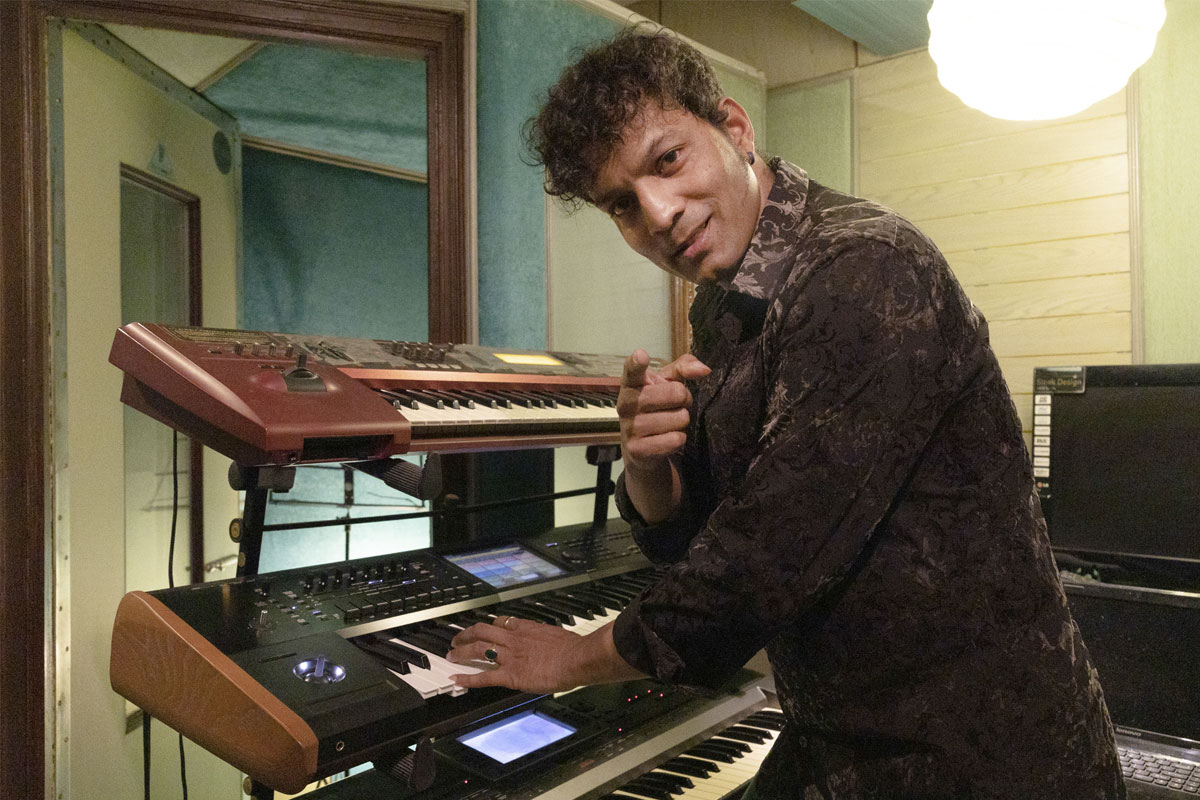 The process of setting up India’s first private wildlife reserve with free ranging tiger and leopard presence was rife with problems and challenges. The process of acquiring an entire agricultural hill with my solo earnings as an artist was arduous. I was under a lot of financial pressure and bank loans. Then started the long process of converting an arid degraded land into a prime tiger forest by rainwater harvesting, making perennial water bodies for wild animals, increasing the moisture content of the soil, removing harmful weeds like lantenna, kala basa, planting endemic trees like various species of figs, amaltas, bankuli, palash, simul, sheesham, sal, rohini, peepal, banyan, wild amlas, mangoes, jamun etc and planting diverse species of grasses and bamboo to develop grasslands. Over the last twelve years, I have ended up planting more than four thousand large evergreen, deciduous, riverine, and fruiting trees in and around Sitabani Wildlife Reserve. Another great challenge was to control hunters and poachers and change the economic model of the area by providing an alternate source of income to the local population through sustainable wildlife tourism.
The process of setting up India’s first private wildlife reserve with free ranging tiger and leopard presence was rife with problems and challenges. The process of acquiring an entire agricultural hill with my solo earnings as an artist was arduous. I was under a lot of financial pressure and bank loans. Then started the long process of converting an arid degraded land into a prime tiger forest by rainwater harvesting, making perennial water bodies for wild animals, increasing the moisture content of the soil, removing harmful weeds like lantenna, kala basa, planting endemic trees like various species of figs, amaltas, bankuli, palash, simul, sheesham, sal, rohini, peepal, banyan, wild amlas, mangoes, jamun etc and planting diverse species of grasses and bamboo to develop grasslands. Over the last twelve years, I have ended up planting more than four thousand large evergreen, deciduous, riverine, and fruiting trees in and around Sitabani Wildlife Reserve. Another great challenge was to control hunters and poachers and change the economic model of the area by providing an alternate source of income to the local population through sustainable wildlife tourism.
How does your family support you? Did you get enough support from family and friends to come up with the Sitabani Wildlife Reserve? What was the reaction of your family to your decision to invest in wildlife?
My parents have always supported me in the spirit in all my madness throughout my life. I never had any godfather in Bollywood and am completely self-made. So, after establishing myself in Bollywood through sheer hard work and dedication, when I wanted to invest all my savings in a remote barren land flanking Corbett National Park, even my courageous parents were a little worried. They said that it would be impossible for me to maintain this faraway land in the Uttarakhand Himalayas while pursuing a demanding film career in Bollywood. I still remember what I told my father that day when he was baffled at my decision to buy this hill. I said ‘Baba, the tiger walks that land and I am born to protect it!’ I believe that you do one per cent for nature and nature does 99% herself. Sure enough! I created the habitat and nature took over. In 2014, a completely wild tigress raised her cubs on my land and suddenly Sitabani Wildlife Reserve shot to international fame. I was just the gardener. The tigress made the world see my efforts by trusting me and giving birth. Normally wild tigresses choose the densest and most remote part of the forest to give birth to newborn cubs.
What are the topmost attractions of Sitabani Wildlife Reserve for national and international tourists?
Sitabani Wildlife Reserve is only open to pure nature lovers. We have a strict screening process before allowing guests. It is an enchanted forest locked in time nestled in the emerald slopes of the Kumaon Himalayas. It is meant for the patient, the intrepid and the spiritual. It is a land of valley winds, silences, gushing mountain streams, starlit nights, and crimson sunsets. You go to bed hearing the distant roar of a predator and wake up to the songs of myriads of birds.
Today Sitabani Wildlife Reserve boasts more than 550 resident and migratory avian species all year round. Apart from megafauna like tiger, leopard, and Asian elephants, it also boasts of deer species like sambar, chital and barking deer, goatantelopes like ghoral, smaller felines like the leopard cat, jungle cat and fishing cat, porcupines, yellow-throated pine marten, Indian hares, mongoose, civets. In the winter months, sometimes Asiatic Black Bears living higher up in the Himalayan oak forests also visit Sitabani Wildlife Reserve. I have selected my field staff from local villagers and given them training in wildlife and birds. My years of experience as a government bonafide tiger and leopard tracker has come to good use in training my field staff. Visitors to Sitabani Wildlife Reserve get the privilege of trekking and gathering first-hand experience of the ancient rhythms of a pristine Indian forest. They can spend their days soaking in the Himalayan sun, bathing in mineral-rich mountain rivers, watching rare birds and animals and exploring various ecosystems like mixed Sal Forest, Himalayan OakRhododendron Forest, riverine forests etc. We do not allow any loud music or other activity that could disrupt the tranquillity of the surrounding forests.
You are a celebrated music composer of Bollywood and a devoted wildlife conservationist. How did you manage to excel in both fields?
I am a recluse. I do not drink, smoke, party, socialise or waste my time attending various social events which a lot of artists normally do. Besides, I have not married so I do not have to take part in regular family matters. I am married to the forest and the trees and animals living in it are my children. I am a creator. I like to create original intellectual properties whether it is songs, symphonies, films, stories, or a forest. Based on my travels and experiences through the hinterland of this vast subcontinent, I have developed many interesting stories and original scripts in the last few years and am now directing films based on them. So, in Mumbai, all my time is spent at my office and the recording studio at Versova creating music and films.
How do you relate music to nature? Which is your priority? What is the role of nature in your music composition?
Nature is the source and music is the sink. I create in nature and execute in Mumbai. All my compositions, stories, music videos and films are created in nature. There is no priority or competition between the two. The peace, silences, valley winds, moonlit nights and sun-kissed days spent at Sitabani Wildlife Reserve rejuvenate the creator in me which plunges back into execution mode in Mumbai.
These days, we have become accustomed to an irregular lifestyle, away from nature. In which direction such thinking is taking humanity? Being a nature lover and environmentalist, what is your message to the people?
“Slow down! Itni bhi kya jaldi hai?” is my advice to all nature-starved people stuck in a rat race to earn more and more money. ‘Time is like a fast-moving river.’ and before you know it, the gift of life is over and you die a rich, fat man. It is the beautiful and wild memories of the life you have lived, which truly make you a rich human. The rest of your life is just like a haze. So, when I see thirsty creatures come and drink from waterbodies which have been physically dug out by me, my heart leaps with joy. No award can be greater than that feeling! There is hidden joy and endless peace in nature. The more materialistic and nature-starved a person gets; he gets into depression. Social media and competing with others are other constant source of anxiety in urban people today. Dig within and you will find a universe which connects with the powers of the cosmos. Once you know your true purpose of being on mother earth, you become a yogi and the universe conspires to make your efforts bear fruit.
To whom would you like to give credit for your success so far?
The credit for whatever I am today goes to two sets of parents. My real parents have reared me fearlessly and taught me to chase my goals however difficult they might be. They have stood by me and supported me in all my madness in my journey as a composer and conservationist. The other credit goes to my other parent, mother earth who has reared me with her life juices to make me into a compelling force of nature. She has given me her unlimited inner strength and primal instinct which I dig into. I feel humans would be a far more evolved species if they gave up self-glorification and bowed down to mother earth.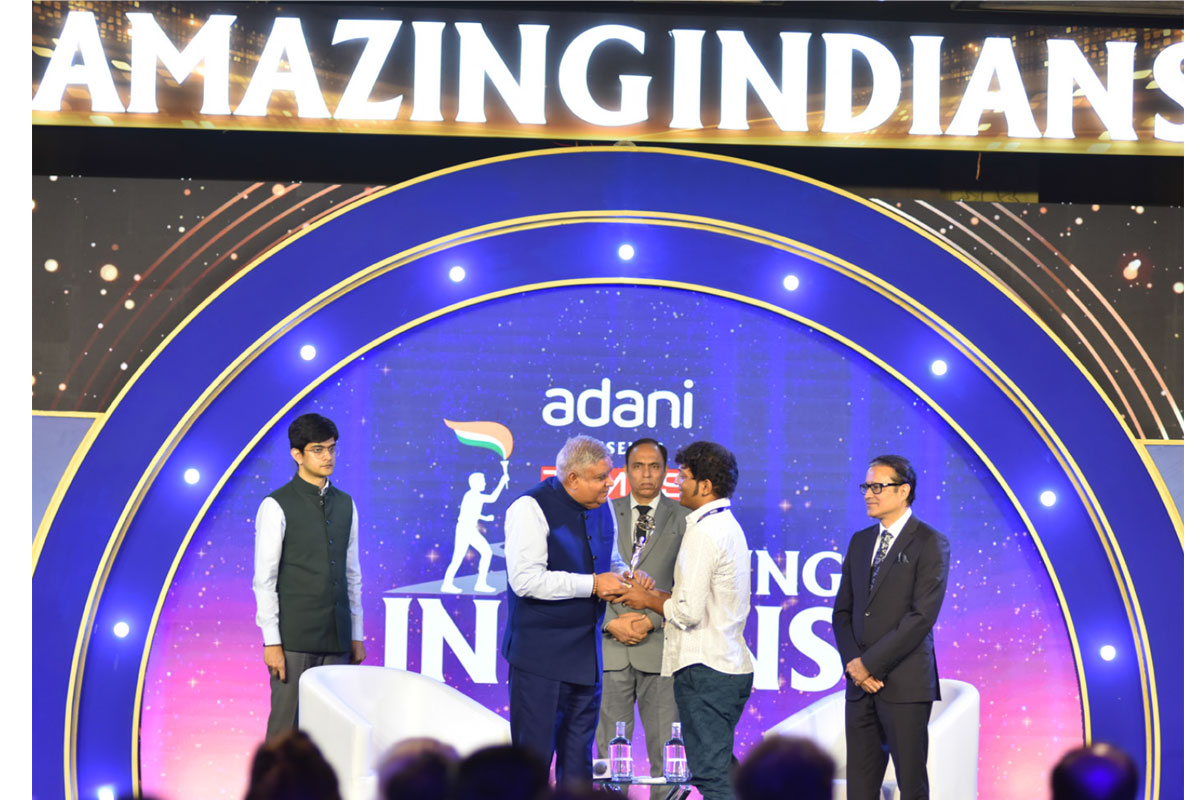
You have been honoured with many prestigious awards for your contribution to wildlife protection and excellent work in music. Which is the biggest award for you?
Throughout my career, many awards have come my way like winning the National Mirchi Music Awards for best song of the year Aye Jahaan Aasmaan (sung by my dearest Sonu Nigam & Shreya Ghoshal) in recent times. But the awards which really make me happy are the ones that I got for nature and wildlife conservation. I won the prestigious Swabhimaan Bharat two years back for creating Sitabani Wildlife Reserve and very recently I was awarded the much acclaimed ‘Amazing Indian Award’ in the category ‘Animal Welfare’ by the honourable Vice President of India. This award was bestowed upon me accompanied by a letter from our dynamic Prime Minister Shri Narendra Modi for creating India’s first private wildlife reserve with a wild tigerleopard presence. And before I sign off, I would like to share the greatest award of them all. On hot summer days, when all the water sources in the neighbouring forest have dried up, I often sit hidden with a camera next to the water bodies that I have created in Sitabani Wildlife Reserve. The creatures that come to drink vary from bees, ants, wasps, snakes, turtles, and birds to the mighty tigers and leopards. Humans have monopolised all sources of freshwater on planet Earth as if it was their exclusive property. I have seen elephant babies fall down unconscious in the summer heat due to their inability to reach the water. All rivers and lakes have been polluted, blocked or channelised by humans for their own needs at the cost of all other free-ranging creatures of mother earth.

